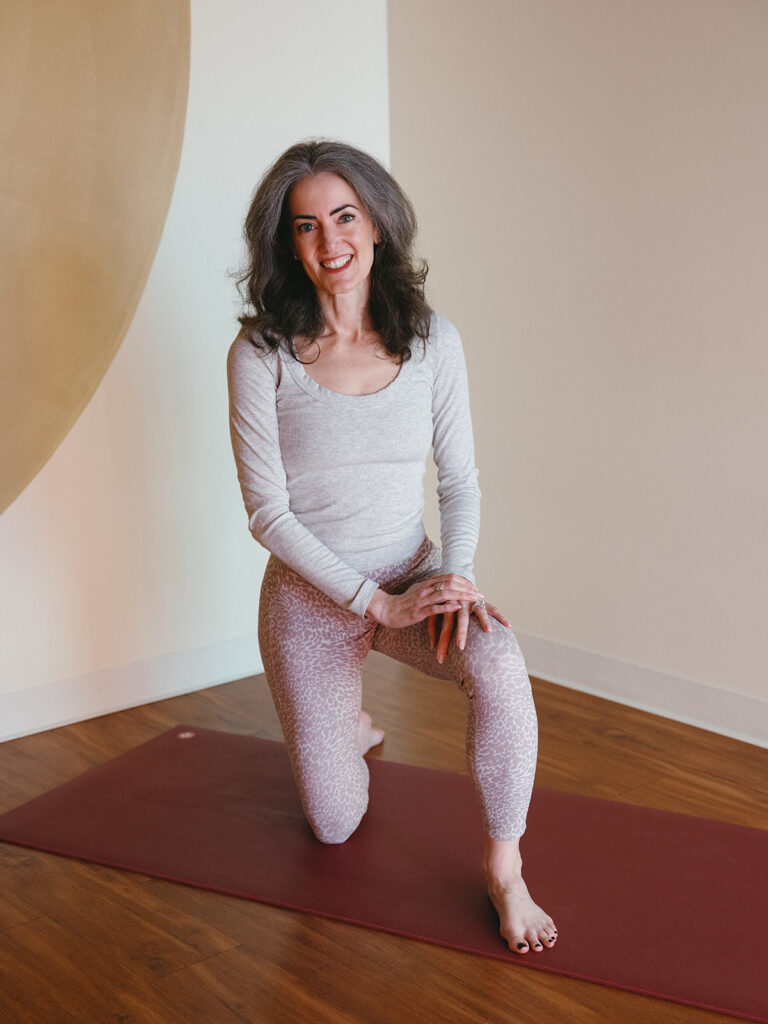If I were to make a word cloud of the language I use while teaching, some of the bigger words would be or, maybe, might, could, can, and try. I’d been thinking this was a weakness—offering students too many choices, suggesting a passivity that stands in contrast to the clear action of short, simple commands (“Inhale, lift your arms; exhale, lower them.”)
 Then I met Anneke Lucas, founder of Liberation Prison Yoga. We chatted at the Liberation Prison Yoga booth at the Yoga Journal LIVE! conference in New York during the lulls in my book signing. Describing the teacher trainings LPY leads, Anneke said the teachers work carefully to avoid direct commands. Instead, the teachers use conditional language or the first person—”You might like to lift your arms,” “I lift my arms”—so that inmates can claim some agency over their practice.
Then I met Anneke Lucas, founder of Liberation Prison Yoga. We chatted at the Liberation Prison Yoga booth at the Yoga Journal LIVE! conference in New York during the lulls in my book signing. Describing the teacher trainings LPY leads, Anneke said the teachers work carefully to avoid direct commands. Instead, the teachers use conditional language or the first person—”You might like to lift your arms,” “I lift my arms”—so that inmates can claim some agency over their practice.
This was so inspiring! And while I am certainly not drawing a parallel between prison guards and coaches, I do think the idea of conditional language giving the agency back to the practitioner is germane to my population of athletes doing yoga. Instead of receiving commands that you must follow, on the yoga mat you get to have a sense of self-efficacy, and to make choices that suit you moment to moment.
A dozen years ago, I had a teacher who said, “Everything I say is optional, just like being here is optional.” What a beautiful lesson it is that even when being somewhere is not optional, how you meet the moment is up to you.

